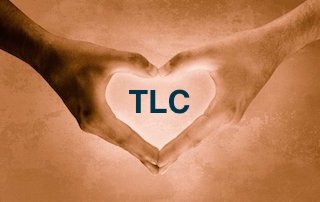For the Love of Chocolate
Chocolate contains many different
components that make people fall in love with it. Most people think that it is
the sugar that they crave, or the caffeine kick. Be aware that caffeine is a
stimulant and can cause a hormone imbalance. While that may be true for some
people, there are some goodies in chocolate.
Chocolate actually contains the
relaxing mineral, magnesium. Most people associate magnesium with calcium. The
body needs more calcium than magnesium at a ratio of 32:1. Calcium and
magnesium are only two minerals of the many minerals and trace minerals that
make up the human body.
One of the many benefits of
magnesium is that “feel good” feeling. Magnesium actually calms the nerves and
relaxes muscles. This is why millions of women crave chocolate at certain times
of the month. When chocolate is eaten, the magnesium causes the consumer to
feel less irritable and more relaxed.
There are good chocolates and bad
chocolates. A bad chocolate is defined as one that has very little chocolate
and a lot of additives. These chocolates should be avoided if you are looking
for the “happy and satisfied” feeling that good chocolate can create.
Many of the cheaper brands of
chocolate contain fillers and additives, including high fructose corn syrup.
High fructose corn syrup recently made headlines for its secondary component.
It seems that over 50% of the high fructose corn syrup contains mercury.
Good chocolate has only a few key
ingredients without fillers and artificial flavors. There are even terrific
tasting chocolate bars without a lot of sugar. Imagine, eating a delicious
chocolate, without raising your blood sugar.
Sugar goes by many names. In fact
there are 42 separate names for sugar so that it can be used in commercial
foods. By naming sugar something other than sugar, most people do not realize
that they are in fact consuming sugar.
The average American consumes 120
pounds of sugar a year, a low estimate. Before there was packaged food, the
average sugar consumption was 30 pounds a year. Sugar has been implicated in
many degenerative health conditions from Diabetes to Heart Disease. There are
at least 146 reasons to not make your diet high in sugar.
A dietary analysis can easily
spot if you are consuming too much sugar. Most people are not aware of the
amount of sugar they consume every day. The key is the total amount of sugar
that you consume in ratio to the fats and proteins that you eat.
If you love to eat breads and
pasta, or rice and potatoes, you are feeding your body sugar. If you skip
meals, you are altering your blood sugar, and will have a stronger desire to
eat sugar. If you drink fruit juice, wine or pop, you are consuming liquid
sugar.
The body has to use additional
stored vitamins in order to efficiently metabolize sugar. This depletes key
vitamin and mineral reserves, like magnesium and the whole Vitamin B complex. When
you eat more sugar than is needed by your body, weight gain is inevitable. Excess
consumed sugars are stored as unwanted body fat.
It is the desire for magnesium that can drive the urge to eat chocolate. This desire indicates a mineral deficiency of magnesium, and its partner, calcium. Magnesium helps the body metabolize fats, proteins and sugars, as well as minerals and vitamins, like Vitamin D. Where there is a magnesium deficiency, there are other missing nutrients too.
Sugar issues and weight issues
also indicate a hormone imbalance. When hormones are in balance the body does
not have unwanted weight or different food cravings. The correct nutritional
supply of needed vitamins and minerals need to be present in order for the body
to have balanced hormones.
Simple non-invasive tests are
available to determine nutritional deficiencies. Dietary analysis and a review
of lifestyle habits can also reveal if you have sugar handling issues or a
hormone imbalance. You do not have to live with an overload of sugar, or guilt
over eating chocolate. It is possible to have your chocolate and enjoy it too,
especially if your body has all the vitamins, minerals and trace minerals that
it needs. Call TLC Holistic Wellness at (734) 664 -0339 to schedule a no-charge consultation to see what how your body is dealing with sugar.

